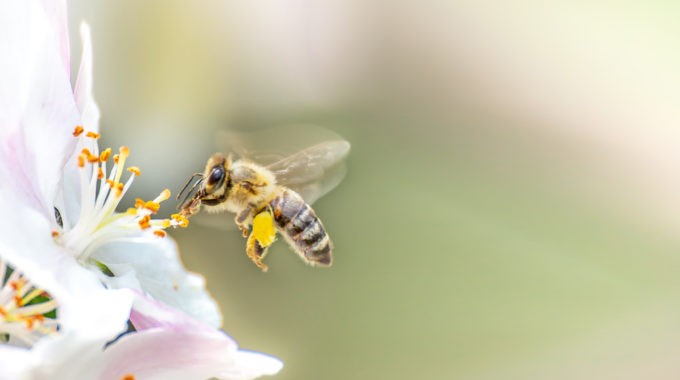World Bee Day 2022: bringing the buzz
May 20 is World Bee Day. The event has been held each year since 2018. It aims to raise awareness of the essential role bees and other pollinators play in keeping people and the planet healthy. This year, bees need our support more than ever. Global pollinator populations are seriously at risk due to the widespread use of pesticides in agriculture, ongoing destruction of their habitat and the growing threat of diseases and destructive parasites like the varroa mite. We take a look at why the world needs bees, and also share the latest bee-related news and World Bee Day events.
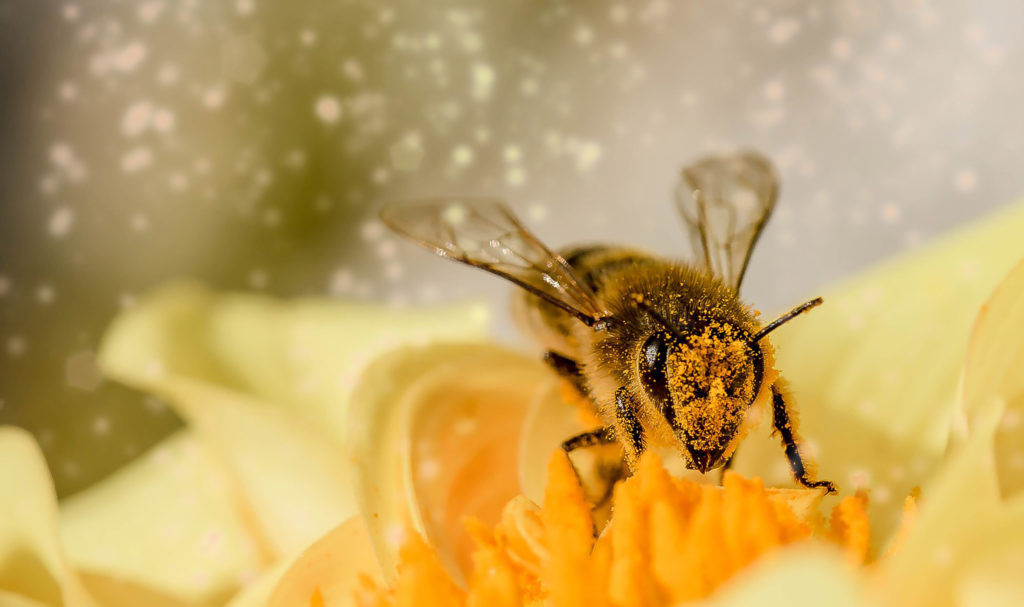
Why are bees so important?
Without bees, our food supply would be jeopardised. Farmers rely on bees to pollinate everything from almonds and strawberries to plants used as livestock feed. In fact, we need bees to pollinate three quarters of the crops that provide 90 percent of the world’s food. Pollinators also play an essential role in maintaining the world’s ecological balance.
“Bees are essential to our lives,” says Fiona Chambers, CEO of the Wheen Bee Foundation, a registered Australian charity dedicated to bees. “They play a crucial role in our food security and diversity, and they underpin biodiversity and ecosystem health.”
Honey bees are also essential to our farmers and our economy. According to Trevor Weatherhead, chair of the Australian Honey Bee Industry Council, it’s estimated that about $14.2 billion worth of crops grown in Australia rely on honey bees for pollination.
But why is May 20 the day to celebrate bees? Several factors led to the choice. In May, the northern hemisphere is in the midst of spring, and bees and nature are flourishing. Here in the southern hemisphere, it’s autumn; a time when hive products are harvested, and the season of honey and honey-based products begins. May 20 is also the birth date of Anton Janša (1734-1773), a Slovenian beekeeper and the pioneer of modern beekeeping.
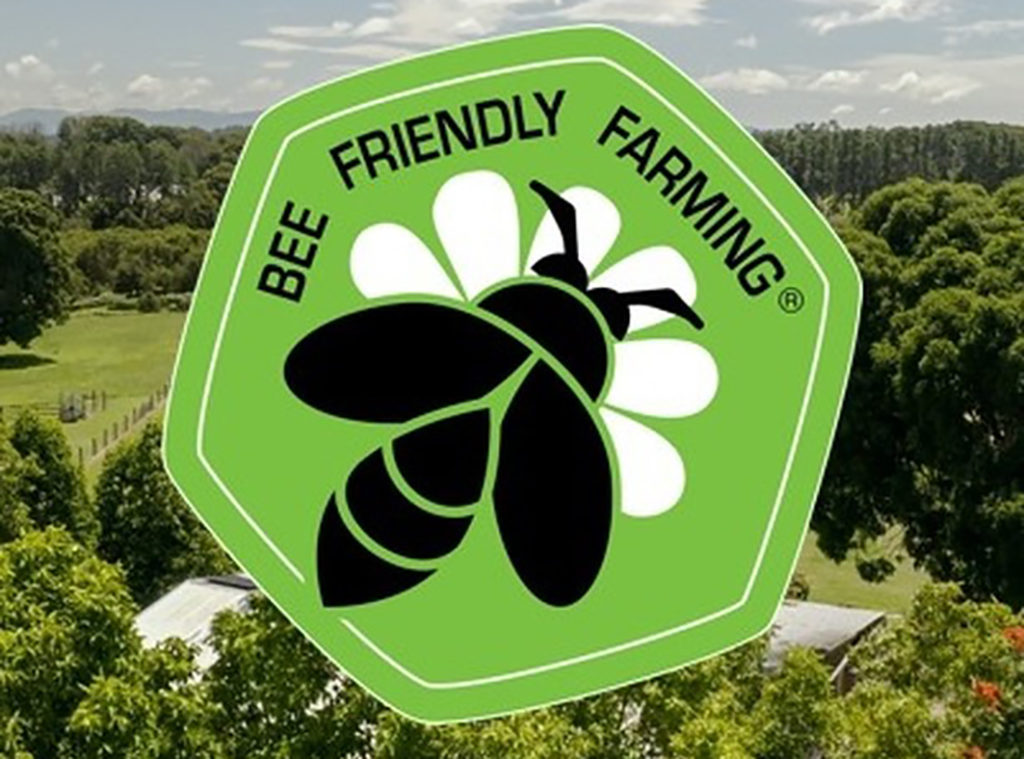
Bee Friendly Farming
This May also marks the first anniversary of Bee Friendly Farming (BFF) Australia. BFF is a certification program that works with farmers and gardeners to help protect, preserve and promote pollinator health. The program provides guidelines for farmers and gardeners to support pollinators on their lands by planting food sources, nesting habitat and “pollinator pathways”, and using bee-friendly methods to control pests.
The Wheen Bee Foundation launched the program in Australia last year. Thus far, it has already seen more than 30,000 hectares of bee-friendly farmland certified across five states in Australia. The program has also awarded almost $50,000 in grants and supported the establishment of 80 hectares of pollinator habitat in four states.
You can find out more about Bee Friendly Farming here.
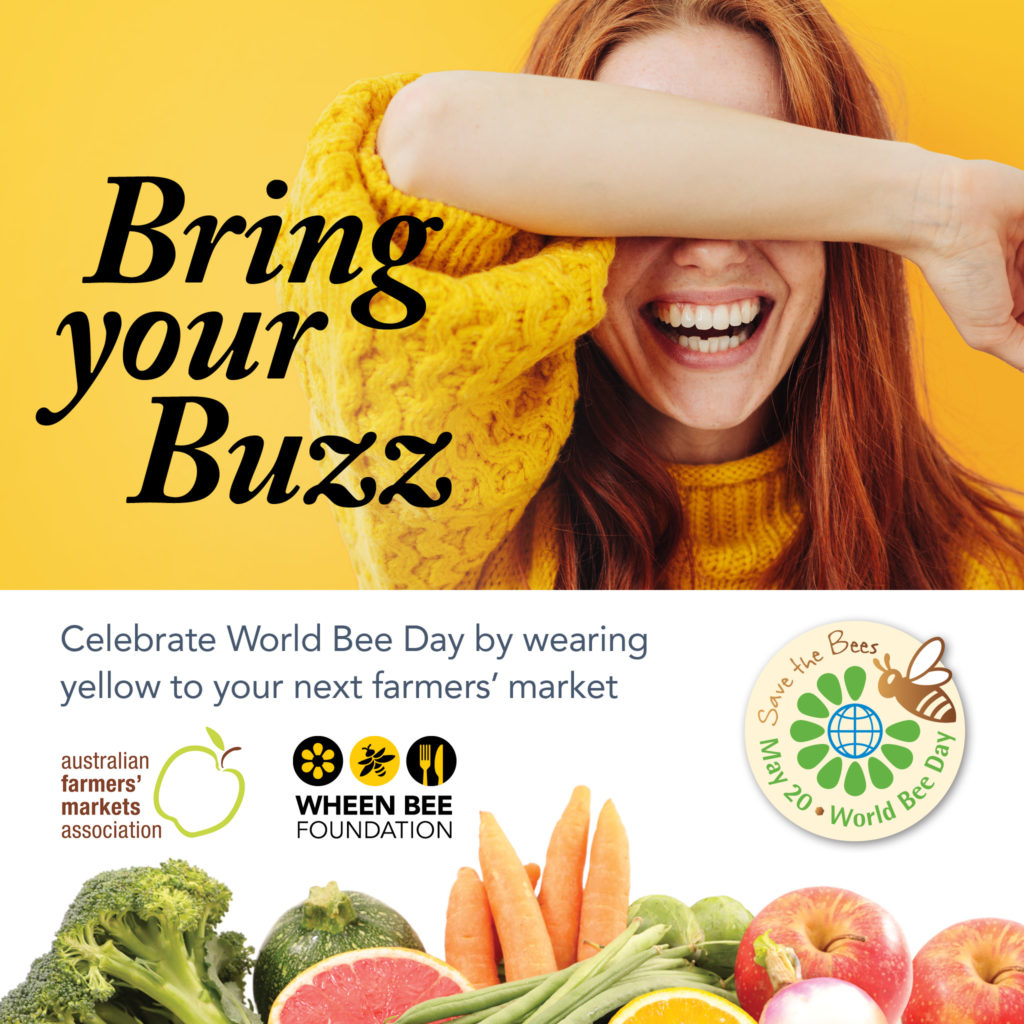
Farmers’ markets celebrate our bees
To mark World Bee Day, the Australian Farmers’ Markets Association (AFMA) has once again partnered with the Wheen Bee Foundation for a special “Bring the Buzz” campaign. All this week, farmers’ markets across the country will be awash with yellow, as farmers, food producers and shoppers wear their favourite yellow clothes to show their support for bees.
The campaign is encouraging people to wear yellow to highlight the crucial role bees play in the food production system, whether that’s for the honey produced by a local beekeeper or the fruits and vegetables that rely on bees for pollination.
“Encouraging stallholders and visitors to wear yellow is a simple, fun way our vibrant farmers’ market network can support healthy food systems and healthy communities,” says Jane Adams, AFMA National Spokesperson. “Yellow is the theme, but it’s not just about clothing. We hope to see yellow shopping trolleys, balloons, dog collars and stall signs – all helping to create a buzz and awareness.
“Farmers’ markets are integral to sustainable food supply and food security, as they ensure regular access to farm-fresh seasonal produce. The role of bees is vital. Put simply, we wouldn’t have farmers’ markets without bees. The farmers’ market sector is committed to supporting the Wheen Bee Foundation’s education and awareness campaigns.”
Participating farmers’ markets include:
Ballarat, Vic
Capital Region, ACT
Harvest Launceston, Tas
HOTA, Qld
Mt Pleasant, SA
Mundaring, WA
Stirling, WA
Willunga, SA
For a full list of markets and World Bee Day events, go to worldbeeday.org.au
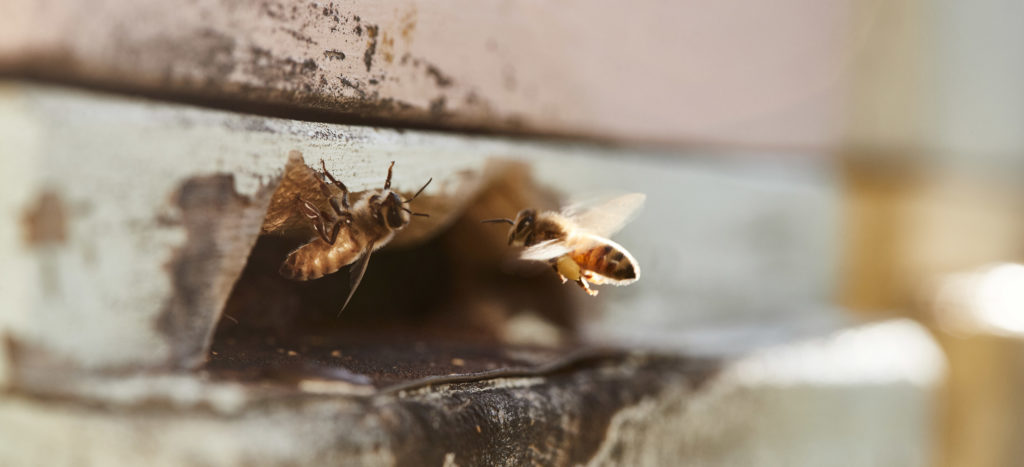
Inside the hive mind
In humans, dopamine is a chemical released in our brains that makes us feel good. It’s part of our natural reward system. If you eat some delicious food or do something rewarding like going for a run or patting a cute puppy, you’ll get a dopamine rush. Recalling that pleasant experience can also lead to the release of dopamine
Now it turns out bees may have a similar system in place. Researchers from France have found that bees’ dopamine levels are elevated during the search for food. Once the food is consumed, dopamine levels drop. This could lead them to “want” to seek out nectar.
Dopamine may also help to trigger a pleasant “memory” of sugary nectar in bees. The researchers found that bees’ dopamine levels rose again when they did their “waggle dance”. This tells other pollinators about the location of the nectar source. When researchers decreased dopamine levels in the bees they were observing, they found the bees spent more time in the hive, and less time out foraging.
To discover a “desire and reward” system in insects is something totally new. As study co-author neuroscientist Martin Giurfa says, “Bees are truly amazing.” True, that.
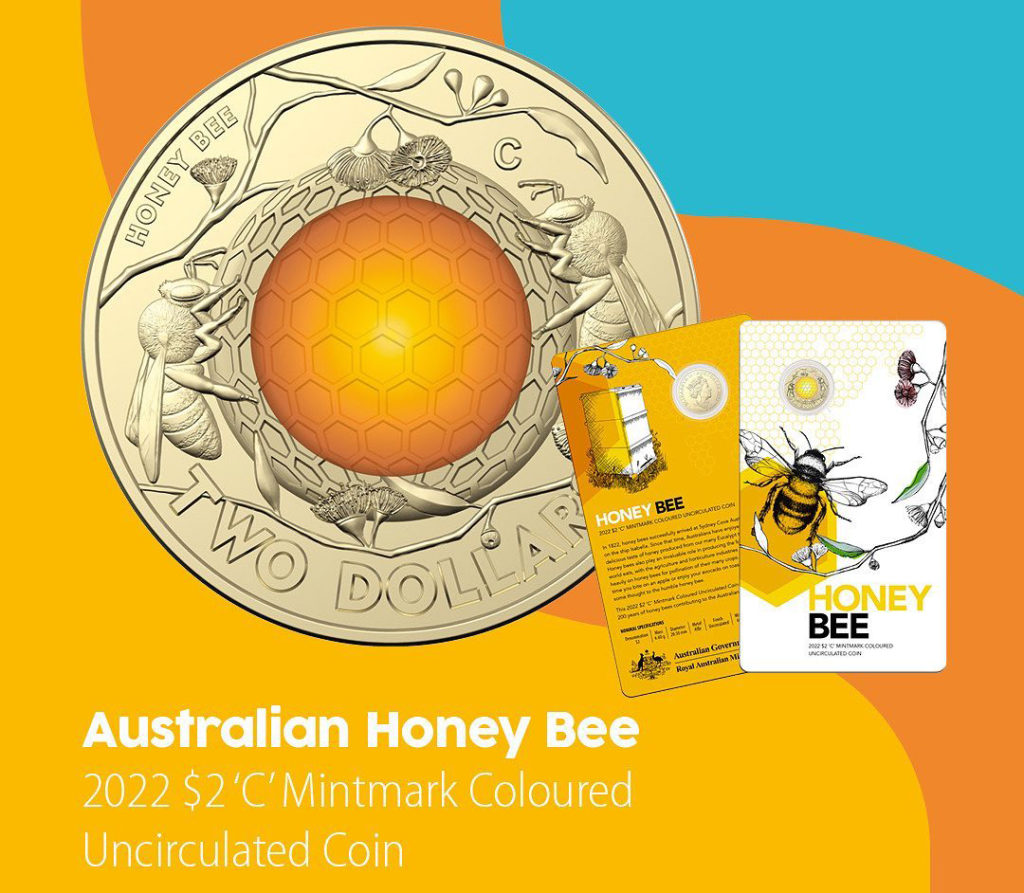
Bee wares
Bees are so important, they now even have their own coin. The Royal Australian Mint has released a special $2 honey bee coin to mark the bicentenary of Australia’s honey bee industry. The collector’s item coin commemorates both bees and our beekeepers.
The Mint worked with the Australian Honey Bee Industry Council to develop the coin’s design. It features two honey bees and Australian flowers and trees, all clustered around a honeycomb-like amber centre. You can get your commemorative bee coin here.
To mark World Bee Day, Australian company Animalia is offering a 20 percent discount on its Blue Banded Bee garden art. Blue banded bees are one of Australia’s most beautiful native bees. Metallic blue bands of fur mark their abdomens. Animalia’s garden art bees are made in Melbourne from COR-TEN steel. They’re designed to only rust on the surface. This means you’ll have a beautiful native bee in your garden forever.
Even better, as a Wheen Bee Foundation Business Buddy, Animalia is also donating 10 percent of all Blue Banded Bee sales to the Wheen Bee Foundation to help raise awareness of Australian native bees and the important role they play in our environment.
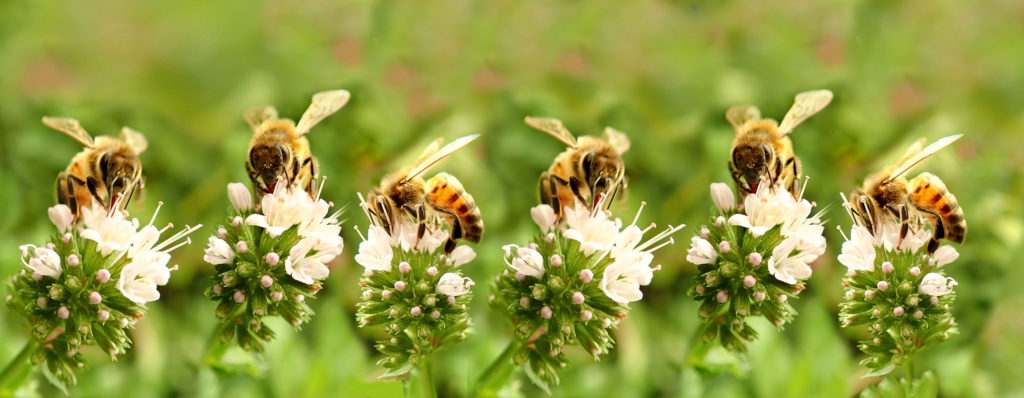
To find out more information about World Bee Day, and to find World Bee Day events in your area, head to worldbeeday.org.au. For home gardeners, we’ve also got some expert advice on how you can build a bee-friendly garden in your own backyard. Or if you want to try your hand at beekeeping, check out this guide from the book, Backyard Bees.


